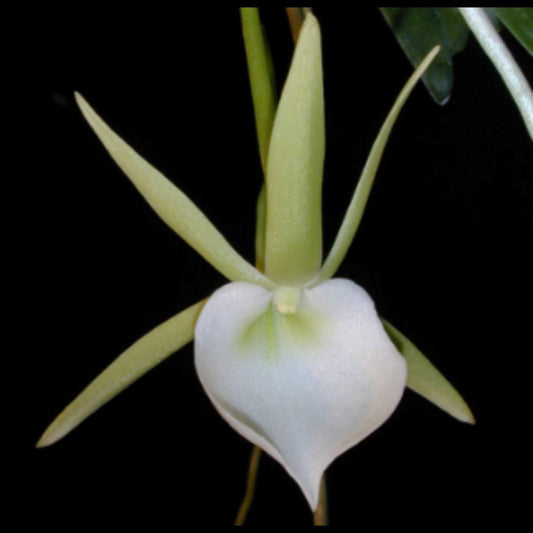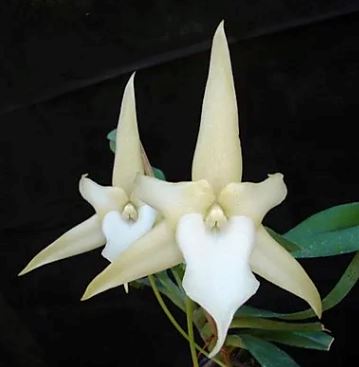
Orchid Care 101: Essential Materials and Minimum Care Requirements for Beginner Orchid Growers
Are you new to the enchanting world of orchids and eager to ensure your new floral companions thrive? Embarking on the journey of orchid cultivation can be incredibly rewarding, but it does require some essential materials and a basic understanding of their care requirements. Whether you're drawn to the vibrant blooms of phalaenopsis or the intricate allure of dendrobiums, here's a comprehensive guide to get you started on the right foot.
Essential Materials for Orchid Care:
-
Orchid Potting Mix: Orchids have unique needs when it comes to potting mix. Opt for a well-draining mix specifically formulated for orchids, such as a blend of bark, sphagnum moss, and perlite. This ensures proper aeration and prevents waterlogged roots.
-
Pots with Drainage Holes: Choose pots with ample drainage holes to prevent water from accumulating at the roots, which can lead to rot. Orchids prefer to have their roots exposed to air between watering.
-
Fertilizer: Select a balanced orchid fertilizer or one formulated specifically for the type of orchid you're growing. Dilute the fertilizer to half strength and apply it during the growing season to promote healthy growth and flowering.
-
Watering Can with a Narrow Spout: Orchids prefer to be watered at their roots rather than having their foliage wet. A watering can with a narrow spout allows for precise watering directly into the potting mix.
-
Pruning Shears: Keep your orchids tidy and healthy by removing spent blooms and dead foliage with sharp, sterile pruning shears. This encourages new growth and prevents the spread of diseases.
-
Humidity Tray or Humidifier: Many orchids thrive in humid environments. A humidity tray filled with water or a room humidifier can help maintain adequate moisture levels, especially in dry indoor environments.
-
Stakes or Supports: Some orchids, such as phalaenopsis, produce long, arching flower spikes that may require support to prevent them from bending or breaking. Stakes or supports can help keep the flower spikes upright and visually appealing.
Minimum Care Requirements for Orchids:
-
Light: Most orchids thrive in bright, indirect light. Avoid placing them in direct sunlight, as this can scorch their leaves. Different species may have varying light requirements, so research your specific orchid to provide the optimal light conditions.
-
Watering: Allow the orchid's potting mix to dry out slightly between waterings. Stick your finger into the mix to gauge moisture levels – it should feel barely damp, not soggy. Water thoroughly when needed, allowing excess water to drain freely from the pot.
-
Temperature: Orchids generally prefer temperatures between 60°F to 80°F (15°C to 27°C) during the day, with slightly cooler temperatures at night. Avoid exposing them to drastic temperature fluctuations or drafts, which can stress the plants.
-
Air Circulation: Good air circulation is essential for orchids to thrive. Provide adequate ventilation around your plants to prevent the buildup of stagnant air, which can promote fungal infections.
-
Repotting: Repot orchids every 1-2 years or when their potting mix breaks down and becomes compacted. Repotting allows you to refresh the potting mix, inspect the roots for health, and provide the orchid with fresh growing space.
-
Fertilizing: Feed your orchids regularly during the growing season (spring and summer) with a balanced fertilizer. Reduce or cease fertilization during the dormant period (fall and winter) when growth slows down.
-
Pest and Disease Control: Keep an eye out for common orchid pests such as aphids, mealybugs, and spider mites. Treat infestations promptly with insecticidal soap or horticultural oil, and isolate infected plants to prevent the spread of pests.
By equipping yourself with the essential materials and adhering to these minimum care requirements, you'll be well-prepared to embark on a successful journey of orchid cultivation. Remember, each orchid species may have its own specific needs and preferences, so don't hesitate to research and adapt your care routine accordingly. With patience, observation, and a little tender loving care, you'll soon be rewarded with the breathtaking beauty of flourishing orchids in your home or garden. Happy growing!








